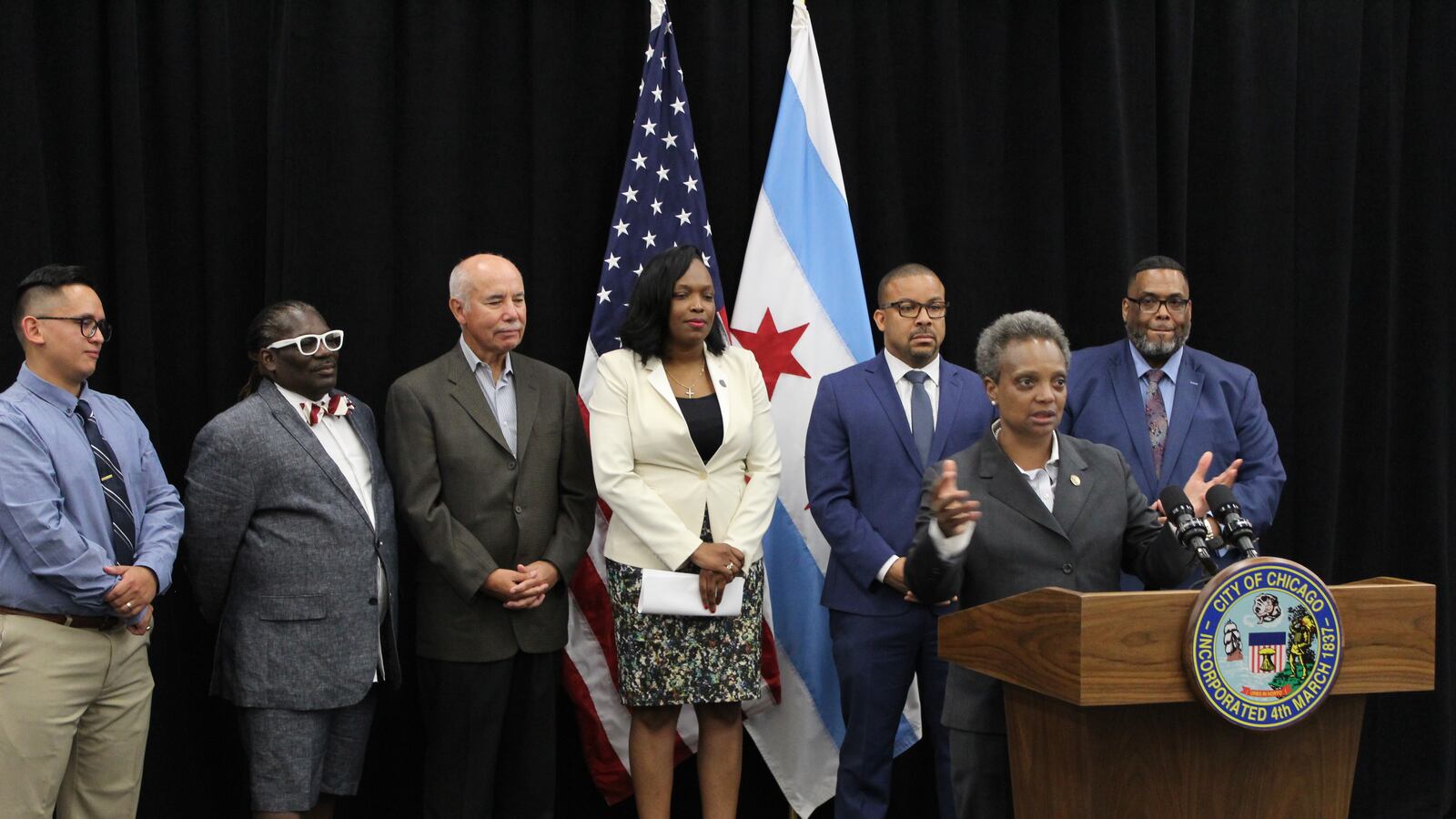Chicago Mayor Lori Lightfoot offered the most detailed look yet at her education agenda on Tuesday, outlining plans to invest in special education support staff and nurses, improve the quality of vocational programs, and potentially revamp the way Chicago funds schools.
She did not offer specifics on how she planned to fund the hundreds of new staff positions across five years, but pointed to the district’s brighter financial outlook.
“The fortunes of CPS absolutely have improved,” Lightfoot said. “We feel comfortable this will fall within the resources we have.”
In a July financial report for the school board, district leaders said Chicago schools are on firmer financial footing than before thanks to increased state funding. But the district’s long-term debt now totals $8.4 billion, and it is still borrowing to pay for day-to-day operations.
During the campaign, Lightfoot pledged to wrestle with the issues of resource inequities across the district and to invest in neighborhood schools.
“Each one demonstrates our commitment to expanding educational equity for all our students and our families,” Lightfoot said at a press conference, at Michele Clark Academic Prep Magnet High School on the West Side, devoted to teacher recruitment. “While every student learns differently, every child should have the support they need to be a lifelong learner.”
Speaking after the mayor, schools chief Janice Jackson said she was excited to “work alongside” the mayor on her plans. “Listening to this presentation today, I just have one word to say: Wow. I’m pretty sure principals, teachers, and parents across the city will have the same reaction.”
By the 2021-22 school year, Lightfoot promised two full-time special education case managers to schools with 240 or more special education students, or those who have Individualized Education Programs, and one full-time case manager to schools with more than 120 special education students.
The mayor proposed adding 200 social workers to Chicago schools over the next five years, along with 250 full-time nurse positions.
Staffing has been a key ask in contract negotiations between Lightfoot and the district. Besides raises, the union is asking the district to hire nearly 5,000 teachers, professionals and aides, at a cost of $880 million over three years.
In a statement, the union demanded again that staffing promises be enshrined in the contract, that hired staff be fully licensed, and that the work would be kept in house and not contracted out.
“The staffing commitment the mayor made today still falls far short of the sweeping need in our schools,” union President Jesse Sharkey wrote in a statement. “And they must be supported not by a press release or a public pledge but by a real commitment in revenue and a legally binding agreement with the CTU on behalf of the students for whom we advocate.”
Lightfoot, who must also deal with larger-than-expected shortfalls in the city’s budget, said the investments will help schools deal with trauma and other tolls on students in Chicago neighborhoods beset by violence.
“The trauma that our children experience on a daily basis outside the classroom impacts their work inside the classroom, and we know that,” Lightfoot said. “We need to provide the supports so they have the opportunity to address what is going on in their life outside of school, and to support our teachers in recognizing those signs and systems.”
“For far too many of our children, their school is their safe haven,” she said. “They need their support and they are going to get it.”
In recent weeks, Lightfoot has discussed school needs with principals, teachers and parents, who identified staffing, vocational education and funding as their top priorities for district investment.
Lightfoot also promised to reconsider how schools in Chicago are funded during the next school year. That sets a timeline for the mayor. Chicago is one of several large school districts in the nation using weighted student funding, which tries to allocate funding based on individual student needs and the number of students.
An unlikely group of allies, from the Chicago Teachers Union to a school choice group with charter ties, have lobbied for the district to consider a wider array of student needs when allocating funds.

